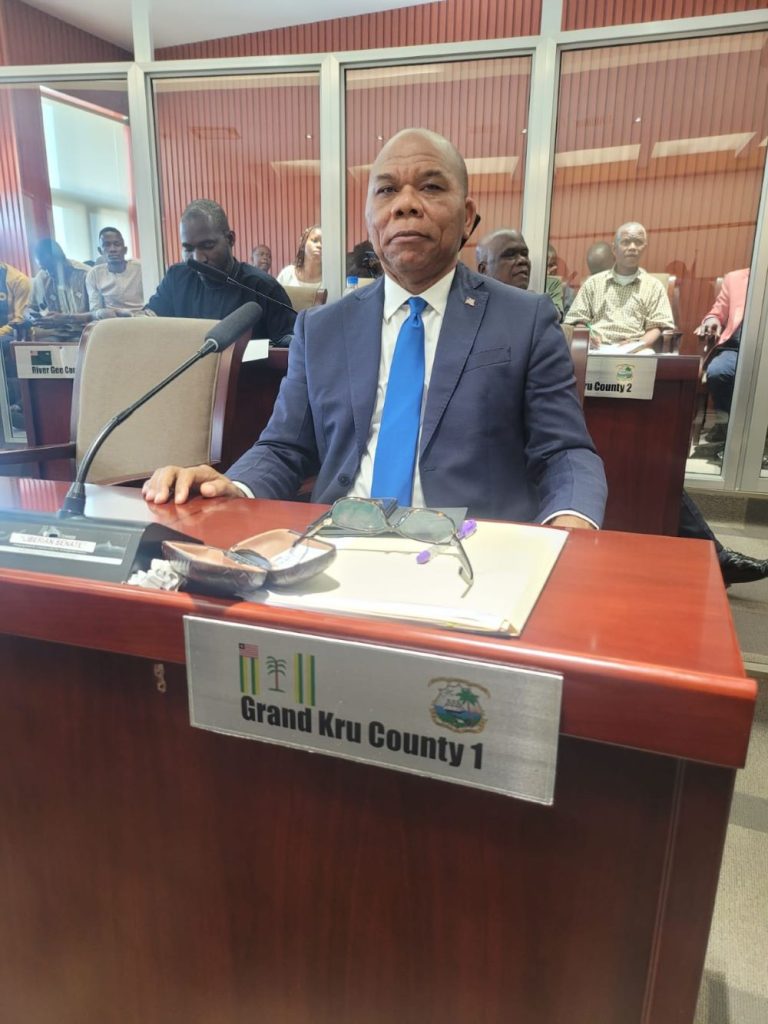Senator Albert Tugbe Chie of Grand Kru County, Liberia, has initiated a call for comprehensive reform within the nation’s downstream petroleum sector, focusing on the Liberia Petroleum Refining Company (LPRC). Senator Chie’s central argument revolves around the LPRC’s current multifaceted role, which encompasses policy setting, regulatory oversight, and commercial operations. This “triple hat” scenario, he argues, creates an inherent conflict of interest, as the LPRC effectively acts as both referee and player in the petroleum market. He points to the LPRC’s simultaneous involvement in licensing petroleum importers while also being an importer itself, and its role in setting prices for importers while also competing with them in the market. This, Senator Chie contends, fosters an uneven playing field that stifles private sector growth, hinders the efficient delivery of affordable energy services to the Liberian population, and potentially compromises government revenue collection.
Drawing upon international best practices, Senator Chie advocates for the separation of these three crucial functions – policy setting, regulatory oversight, and commercial operations – into distinct and independent entities. He highlights the successful implementation of this model in Liberia’s upstream petroleum sector, where the Liberia Petroleum Regulatory Authority (LPRA) handles regulatory oversight, the Ministry of Mines and Energy manages policy setting, and the National Oil Company of Liberia (NOCAL) operates as a commercial entity. This division of responsibilities, he believes, promotes transparency, accountability, and a more competitive market environment. He contrasts this success with the downstream sector’s stagnation, where the LPRC continues to operate under a framework established in 1978 and 1989, which grants it overlapping and potentially conflicting mandates.
Senator Chie’s proposed solution involves a national discourse on restructuring the downstream petroleum sector, led by the Senate Committees on Public Corporations, Autonomous Agencies, Energy, Hydrocarbon & Environment, and Judiciary. This discourse would involve public hearings and a review of the LPRC’s existing corporate charter and the 1989 Act that grants the LPRC its current broad mandate. The goal of this process is to achieve a more efficient and transparent downstream sector, potentially by creating a new, independent regulatory body or assigning this function to an existing entity other than the LPRC. The Ministry of Mines & Energy, or another designated government agency, would assume responsibility for policy setting, leaving the LPRC to focus solely on its commercial operations. Alternatively, the LPRC could be designated as the regulatory authority, but it would then need to divest itself of its commercial operations.
The Senator’s proposal aligns with the National Energy Policy of 2009, which explicitly recommended unbundling the activities of the LPRC, the Liberia Electricity Corporation (LEC), and NOCAL. While the power sector has successfully implemented these reforms, with the Ministry of Mines & Energy overseeing policy, the Liberia Electricity Regulatory Commission (LERC) managing regulation, and the LEC focusing on commercial operations, the downstream petroleum sector has lagged behind. Senator Chie emphasizes the importance of finally implementing the 2009 policy recommendations to modernize the downstream petroleum sector and bring it in line with international standards. He believes this will create a more competitive and efficient market, ultimately benefiting consumers with lower prices and more reliable energy services.
The current system, where the LPRC serves as both regulator and market participant, presents significant challenges. By setting the rules and simultaneously competing within the market it regulates, the LPRC’s actions are subject to scrutiny and accusations of potential bias. This structure can stifle competition, deter private sector investment, and limit consumer choice. Unbundling the LPRC’s functions would create a level playing field for all market participants, fostering healthy competition and driving innovation. An independent regulatory body would ensure fair market practices and protect consumer interests, while the LPRC, freed from regulatory responsibilities, could focus on optimizing its commercial operations and improving efficiency.
This proposed reform is crucial for Liberia’s continued economic development. A more transparent and efficient downstream petroleum sector will attract investment, create jobs, and ensure a reliable supply of affordable energy, which is essential for economic growth and poverty reduction. By separating the roles of policy making, regulation, and commercial operation, Liberia can establish a robust and competitive petroleum market that benefits all stakeholders, from private sector companies to individual consumers. The national discourse initiated by Senator Chie represents a vital step towards achieving this goal and modernizing Liberia’s energy sector.


